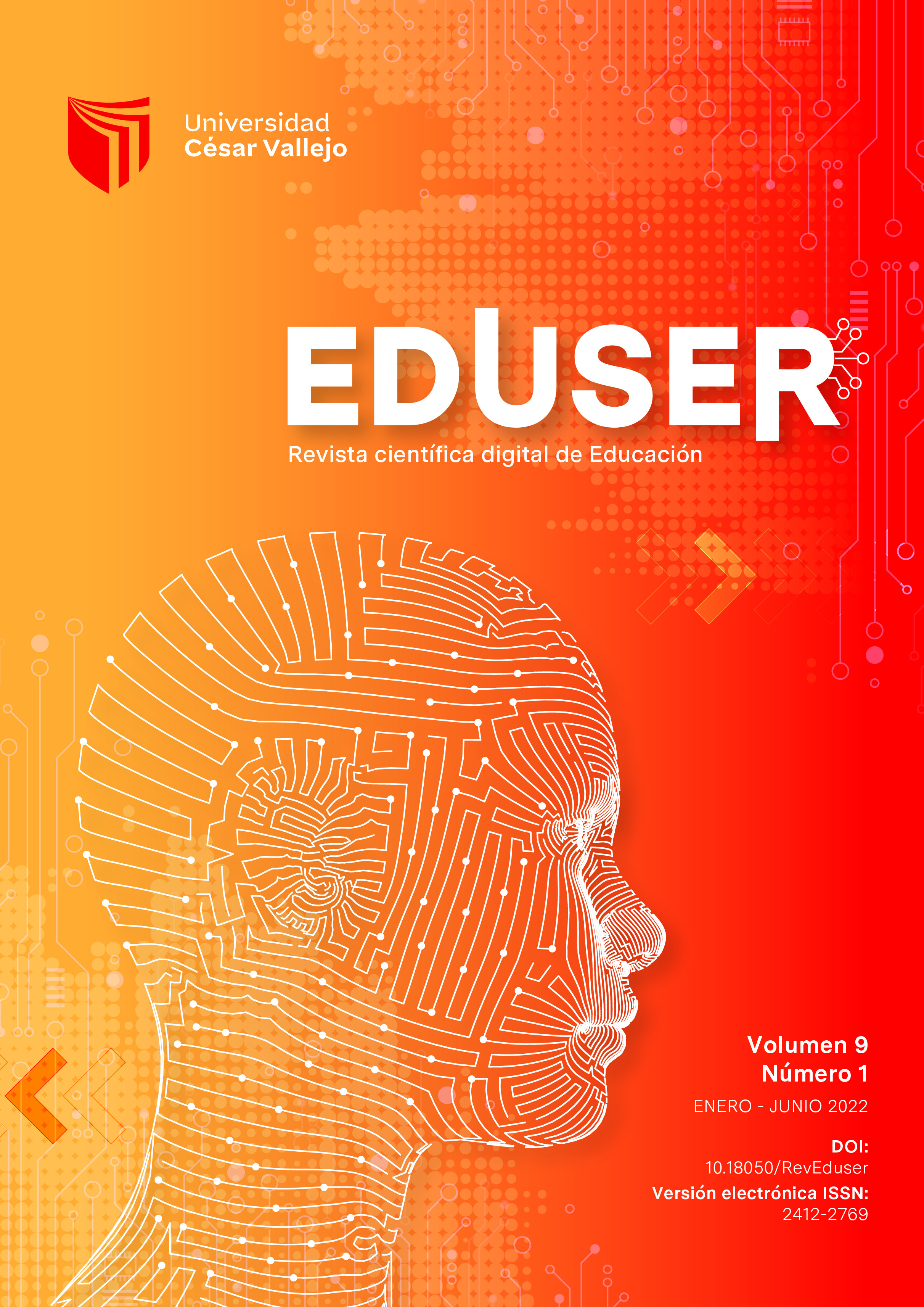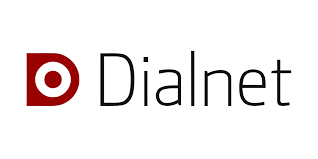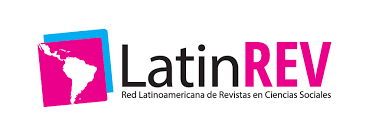Promoting research in higher education institutions: Literature Review 2016-2021
DOI:
https://doi.org/10.18050/eduser.v9n1a7Keywords:
Research, higher education, developmentAbstract
Research, an essential component in higher education, needs to be promoted due to the low development in educational institutions. The study sought to identify the axes that promote it based on the analysis of articles that addressed the subject. A systematic review was carried out based on the last 5 years, using the Scopus database. Four fundamental axes were identified to promote research, without ensuring that they constitute the only elements for this purpose. Existing literature mentioned the development of research skills, followed by the encouragement of networked collaborations; emphasized the strengthening of the leadership of research centers in university institutions; He referred to the use of information and communication technologies (ICTs) to create and disseminate scientific knowledge. In addition, the promotion of ethics and values in research is also highlighted. It was concluded that these elements should be integrated into the institutional policies of both universities and research-related organizations.
References
Aguilar de Cáceres, M. C. (2020). Gestión estratégica en los centros de investigación de la Universidad Nacional de Asunción. Población y Desarrollo, 26(51), 20–25. https://doi.org/10.18004/pdfce/2076-054x/2020.026.51.020
Abanteriba, S. (2006). Development of strategic international industry links to promote undergraduate vocational training and postgraduate research programmes. European Journal of Engineering Education, 31 (3), pp. 283-301. https://doi.org/10.1080/03043790600644412
Antúnez-Sanchez, A. G., & Veytia-Bucheli, M. G. (2020). Desarrollo de competencias investigativas y uso de herramientas tecnológicas en la gestión de información. Revista Conrado, 16(72), 96–102. http://scielo.sld.cu/scielo.php?script=sci_arttext&pid=S1990-86442020000100096
Bautista-Vallejo, J. M., Duarte de Krummel, M., Hernández-Carrera, R. M., & Espigares-Pinazo, M. J. (2020). Investigar en la Universidad hoy. Apuntes para el liderazgo educativo y el cambio social. Revista Científica de La UCSA, 7(1), 39–48. https://doi.org/https://doi.org/10.18004/ucsa/2409-8752/2020.007.01.039-048
Bhat, A., Shah, A., Sherighar, S.G. (2017). Instructions to Prospective Authors by Indian Biomedical Journals: An Opportunity to Promote. Responsible Conduct of Research. Journal of Empirical Research on Human Research Ethics, 12 (2), pp. 117-123. https://doi.org/10.1177/1556264617698277
Blanco-Guzmán, M. (2020). Desarrollo de competencias básicas de investigación. Ajayu Órgano de Difusión Científica Del Departamento de Psicología UCBSP, 18(1), 25–51. http://www.scielo.org.bo/scielo.php?script=sci_arttext&pid=S2077-21612020000100002&lang=pt%0Ahttp://www.scielo.org.bo/pdf/rap/v18n1/v18n1_a02.pdf
Cheruvelil, K.S., Palma-Dow, A.D., Smith, K.A. (2020). Strategies to Promote Effective Student Research Teams in Undergraduate Biology Labs. American Biology Teacher, 82 (1), 18-27. https://doi.org/10.1525/abt.2020.82.1.18
CONCYTEC (2019). Principales indicadores bibliométricos de la actividad científica peruana 2012-2017. Consejo Nacional de Ciencia Tecnología e Innovación Tecnológica.
Coniam, D. (2015). Using one’s own professional activities to promote research and publishing. European Journal of Teacher Education, 38 (3), 408-427. https://doi.org/10.1080/02619768.2014.983067
Cruz-Ortiz, M., Pérez-Rodríguez, M. del C., Jenaro-Rio, C., Flores-Robaina, N., & Torres-Apolo, V. A. (2020). Ethical implications for research: A constant defiance in a changing world. Horizonte Sanitario, 19(1), 9–17. https://doi.org/10.19136/hs.a19n1.3277
Cuadros-Contreras, R. (2019). Ética y formación de investigadores: La importancia de las virtudes y la sabiduría práctica. Revista Colombiana de Educación, 1(79), 237–238. https://doi.org/10.17227/rce.num79-7972
Estrada-Cely, G. E., & Parra-Herrera, J. P. (2016). Las implicaciones éticas y bioéticas en la investigación científica. CES Medicina Veterinaria y Zootecnia, 11(2), 115–118. https://doi.org/10.21615/cesmvz.11.2.9
Ettinger, R.L. (2010). Meeting oral health needs to promote the well-being of the geriatric population: Educational research issues. Journal of Dental Education, 74 (1), 29-35. https://www.scopus.com/inward/record.uri?eid=2-s2.074349125699&partnerID=40&md5=c008d35a041c43bbee9ef27625c9e3db
Fechheimer, M., Webber, K., Kleiber, P.B. (2011). How well do undergraduate research programs promote engagement and success of students? CBE Life Sciences Education, 10 (2), 156-163. https://doi.org/10.1187/cbe.10-10-0130
Ghee, M., Keels, M., Collins, D., Neal-Spence, C., Baker, E. (2016). Fine-tuning summer research programs to promote underrepresented students’ persistence in the STEM pathway. CBE Life Sciences Education, 15 (3), art. no. ar28, 11. https://doi.org/10.1187/cbe.16-01-0046
Gómez-Arteta, I., Sánchez-Rossel, M., & Bonifaz-Valdez, B. (2020). Percepción de docentes universitarios sobre la investigación y libertad de cátedra. Aportes de La Comunicación y La Cultura, 28(1), 45–53. http://www.scielo.org.bo/scielo.php?script=sci_arttext&pid=S2306-86712020000100006
Haque, S., O'Broin, D., Kehoe, J. (2017). Using game elements to guide postgraduate research students to promote progression and social connectedness. Proceedings of the 11th European Conference on Games Based Learning. ECGBL 2017, 881-889. https://www.academia.edu/43025544/Using_Game_Elements_to_Guide_Postgraduate_Research_Students_to_Promote_Progression_and_Social_Connectedness
Hernández-Palma, H. G., Niebles-Nuñez, W., Pacheco-Ruiz, C., & Rojas-Martínez, C. (2020). Technological strategies at university libraries as a resource center for research and learning in the Colombian Caribbean region. Formacion Universitaria, 13(6), 51–60. https://doi.org/10.4067/S0718-50062020000600051
Kalichman, M.W., Plemmons, D.K. (2018). Intervention to Promote Responsible Conduct of Research Mentoring. Science and Engineering Ethics, 24 (2), pp. 699-725. https://doi.org/10.1007/s11948-017-9929-8
Kleib, M., Jackman, D., Duarte-Wisnesky, U. (2021). Interprofessional simulation to promote teamwork and communication between nursing and respiratory therapy students: A mixed-method research study. Nurse Education Today. https://doi.org/10.1016/j.nedt.2021.104816
Kohlwes, J., O'Brien, B., Stanley, M., Grant, R., Shunk, R., Connor, D., Cornett, P., Hollander, H. (2016). Does Research Training During Residency Promote Scholarship and Influence Career Choice? A Cross-Sectional Analysis of a 10-Year Cohort of the UCSF–PRIME Internal Medicine Residency Program. Teaching and Learning in Medicine, 28 (3), 314-319. https://doi.org/10.1080/10401334.2016.1155460
Maritz, J., Visagie, R.G., Burger, D. (2013). Exploring research coaching and mentoring as a strategy to promote research output and manage research diversity in private higher education institutions. International Journal of Diversity in Education, 12 (1), 1-12. https://doi.org/10.18848/2327-0020/cgp/v12i01/40048
Mayo, M., Howell, W., De Masi, S. (2018). Use of a parallel-emic research model and key-word-in-context indexing tool to develop an instructional exercise to promote student global mindedness. Journal of Teaching in International Business, 29 (2), 113-133. https://doi.org/10.1080/08975930.2018.1480992
McNeely, C.A., Morland, L., Doty, S.B., Meschke, L.L., Awad, S., Husain, A., Nashwan, A. (2017). How Schools Can Promote Healthy Development for Newly Arrived Immigrant and Refugee Adolescents: Research Priorities. Journal of School Health, 87 (2), 121-132. https://doi.org/10.1111/josh.12477
Núñez, H., Llena Berñe, A., Fabra Fres, N., Gómez Serra, M. (2021). Participatory action research and participatory evaluation. Analysis of two methodological approaches to promote youth agency and participation. (2021). Revista de Cercetare si Interventie Sociala, 75, 28-52. https://doi.org/10.33788/rcis.75.2
Perines, H. A. (2020). La formación en investigación educativa de los futuros profesores. Formación Universitaria, 13(4), 139–152. https://doi.org/10.4067/s0718-50062020000400139
Reynosa-Navarro, E., Serrano-Polo, E., Ortega-Parra, A., Navarrol-Silva, O., Cruz-Montero, J., & Salazar-Montoya, E. (2020). Estrategias didácticas para investigación científica: relevancia en la formación de investigadores. Universidad y sociedad. 21(1), 1–9. https://rus.ucf.edu.cu/index.php/rus/article/view/1445
SENESCYT (2019). Propuesta de metodología para la determinación del índice de competitividad. https://siau.senescyt.gob.ec/imagenes/2020/10/Informe-competitividad.pdf
Song, Y., Lan, H., Cao, F., Chen, M. (2021). Research on the Effect of Using Sports Apps Based on GPS and Sensing Technology to Promote College Students' Extracurricular Exercises:-Take Chongqing University of Technology as an Example. Proceedings – 2021. International Conference on Information Technology and Contemporary Sports, TCS 2021, 615-618. https://doi.org/10.1109/TCS52929.2021.00130
Tan, Ch., Huet, I. (2021). The design of an active learning strategy to promote collaborative and research-based learning in project management education. International Journal of Innovation and Learning, 30 (1), 19-47. https://doi.org/10.1504/IJIL.2021.116566
Theobald, S., Nhlema-Simwaka, B. (2008). The research, policy and practice interface: Reflections on using applied social research to promote equity in health in Malawi. Social Science and Medicine, 67 (5), 760-770. https://doi.org/10.1016/j.socscimed.2008.02.015
Yan, C. (2017). You never know what research is like unless you’ve done it!’ Action research to promote collaborative student-teacher research. Educational Action Research, 25 (5), 704-719. https://doi.org/10.1080/09650792.2016.1245155
Zhang, Y., Moore, K.E. (2005). A Class Demonstration Using Deception To Promote Student Involvement With Research Ethics. College Teaching, 53 (4), 155-157. https://doi.org/10.3200/CTCH.53.4.155-158
Additional Files
Published
How to Cite
Issue
Section
License
Copyright (c) 2024 Omar Bullón, Fiorella R. Valero-Palomino, Arturo Hoffmeister

This work is licensed under a Creative Commons Attribution 4.0 International License.













